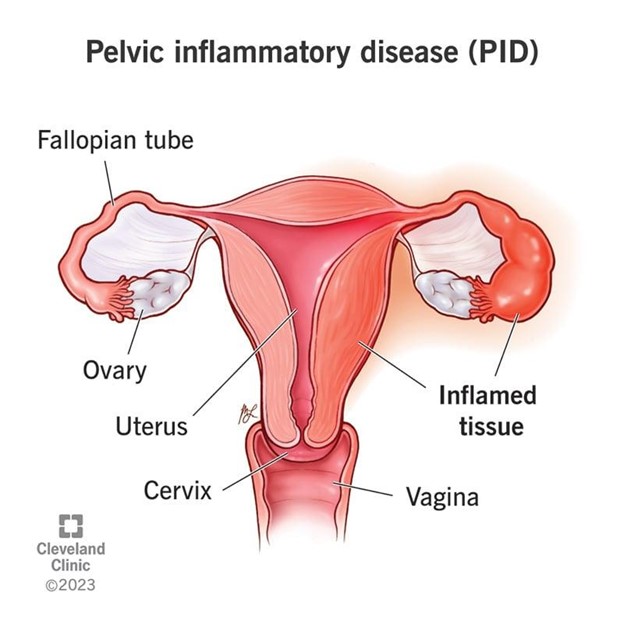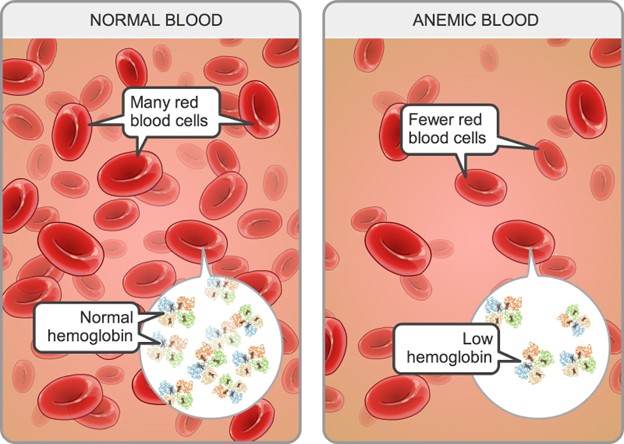Which information on a client's health history would the nurse identify as contributing to the client's risk for an ectopic pregnancy?
Recurrent pelvic infections
Ovarian cyst 2 years ago
Use of oral contraceptives for 8 years
Heavy, irregular periods
The Correct Answer is A
Choice A Reason: This is correct because recurrent pelvic infections, such as pelvic inflammatory disease (PID), can cause scarring and inflammation of the fallopian tubes, which can impair the normal movement of the fertilized egg to the uterus. This can increase the risk of ectopic pregnancy, which is a life-threatening condition where the fertilized egg implants outside the uterine cavity, usually in the fallopian tube.
Choice B Reason: This is incorrect because ovarian cysts are fluid-filled sacs that develop in or on the ovaries. They are usually benign and do not affect fertility or pregnancy. However, some types of ovarian cysts, such as endometriomas or dermoid cysts, may require surgery to remove them, which can cause damage to the ovaries or fallopian tubes and increase the risk of ectopic pregnancy.
Choice C Reason: This is incorrect because use of oral contraceptives for 8 years is not a risk factor for ectopic pregnancy. In fact, oral contraceptives can reduce the risk of ectopic pregnancy by preventing ovulation and fertilization. However, if a woman becomes pregnant while taking oral contraceptives, she should stop taking them and consult her doctor, as they may have adverse effects on the developing fetus.
Choice D Reason: This is incorrect because heavy, irregular periods are not a risk factor for ectopic pregnancy. They may indicate other conditions such as hormonal imbalance, uterine fibroids, polycystic ovary syndrome (PCOS), or endometriosis, which can affect fertility or pregnancy, but not necessarily cause ectopic pregnancy.

Nursing Test Bank
Naxlex Comprehensive Predictor Exams
Related Questions
Correct Answer is A
Explanation
Choice A: Hemodilution of pregnancy is a normal physiological phenomenon that occurs when the plasma volume increases more than the red blood cell mass, resulting in a lower hemoglobin concentration. The normal hemoglobin range for pregnant women in the second trimester is 10.5 to 14 g/dL.
Choice B: A multiple gestation pregnancy may cause a higher hemoglobin level due to increased erythropoietin production by the placenta. The normal hemoglobin range for pregnant women with twins in the second trimester is 12 to 16 g/dL.
Choice C: Greater-than-expected weight gain is not related to hemoglobin level. Weight gain during pregnancy depends on various factors such as pre-pregnancy weight, nutrition, activity level, and fetal growth.
Choice D: Iron-deficiency anemia is a condition where the hemoglobin level is below the normal range due to inadequate iron intake or absorption, blood loss, or increased iron demand. The signs and symptoms of iron-deficiency anemia include fatigue, pallor, weakness, shortness of breath, and pica.

Correct Answer is ["A","B","C","D"]
Explanation
Choice A Reason: This is correct because cloudy malodorous fluid indicates that the amniotic fluid is contaminated with bacteria or other microorganisms that can cause infection in the woman or the fetus. Normally, amniotic fluid is clear and odorless.
Choice B Reason: This is correct because abdominal tenderness suggests that the woman has inflammation or irritation of the uterus or other pelvic organs due to infection. Abdominal tenderness can also be accompanied by cramping, pain, or fever.
Choice C Reason: This is correct because fetal bradycardia, which is a slow fetal heart rate below 110 beats per minute, indicates that the fetus is experiencing distress or hypoxia due to infection. Fetal bradycardia can be detected by electronic fetal monitoring or Doppler device.
Choice D Reason: This is correct because elevated maternal pulse rate, which is a heart rate above 100 beats per minute, indicates that the woman has an increased metabolic demand or systemic inflammation due to infection. Elevated maternal pulse rate can also be caused by dehydration, anxiety, or pain.
Choice E Reason: This is incorrect because decreased C-reactive protein levels do not indicate infection. C-reactive protein (CRP) is a protein that is produced by the liver in response to inflammation or infection. Increased CRP levels can be a sign of infection, but decreased CRP levels can be normal or indicate other conditions such as liver disease or malnutrition.
Whether you are a student looking to ace your exams or a practicing nurse seeking to enhance your expertise , our nursing education contents will empower you with the confidence and competence to make a difference in the lives of patients and become a respected leader in the healthcare field.
Visit Naxlex, invest in your future and unlock endless possibilities with our unparalleled nursing education contents today
Report Wrong Answer on the Current Question
Do you disagree with the answer? If yes, what is your expected answer? Explain.
Kindly be descriptive with the issue you are facing.
